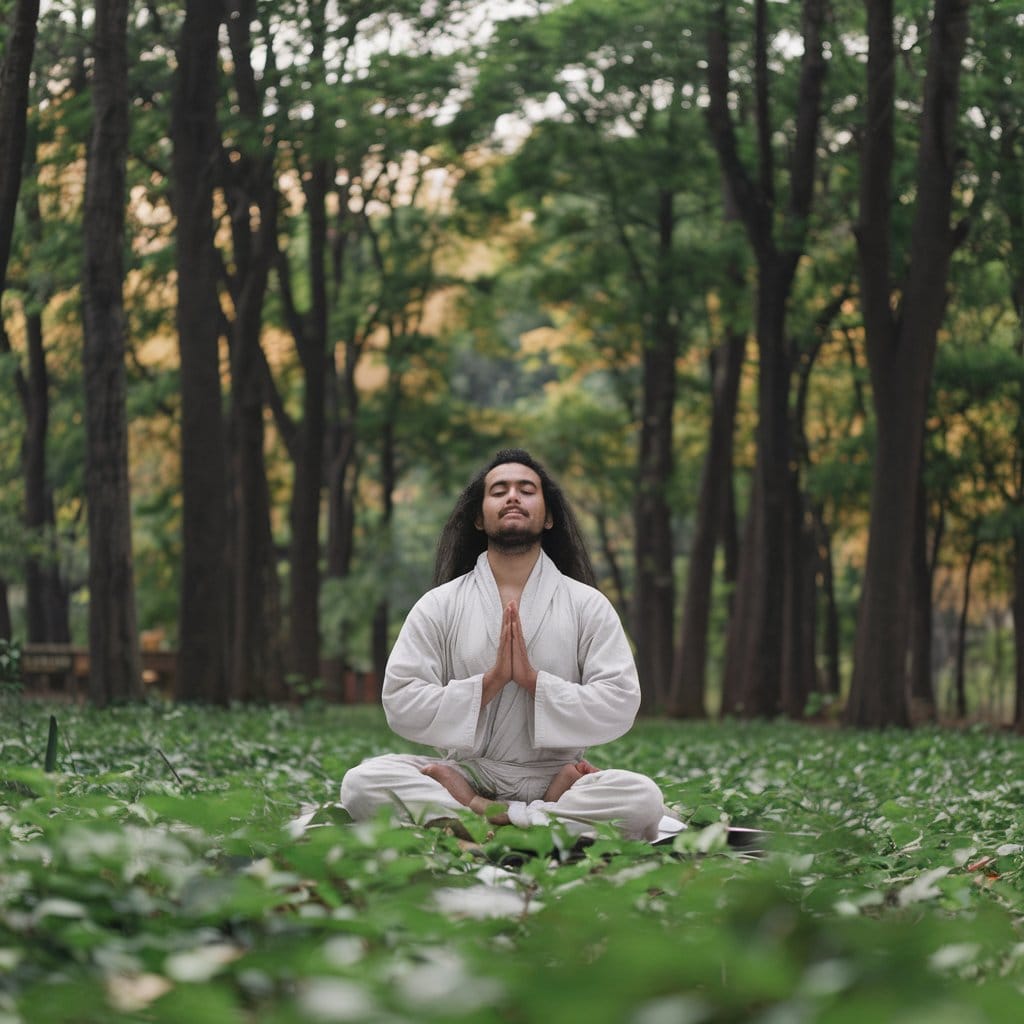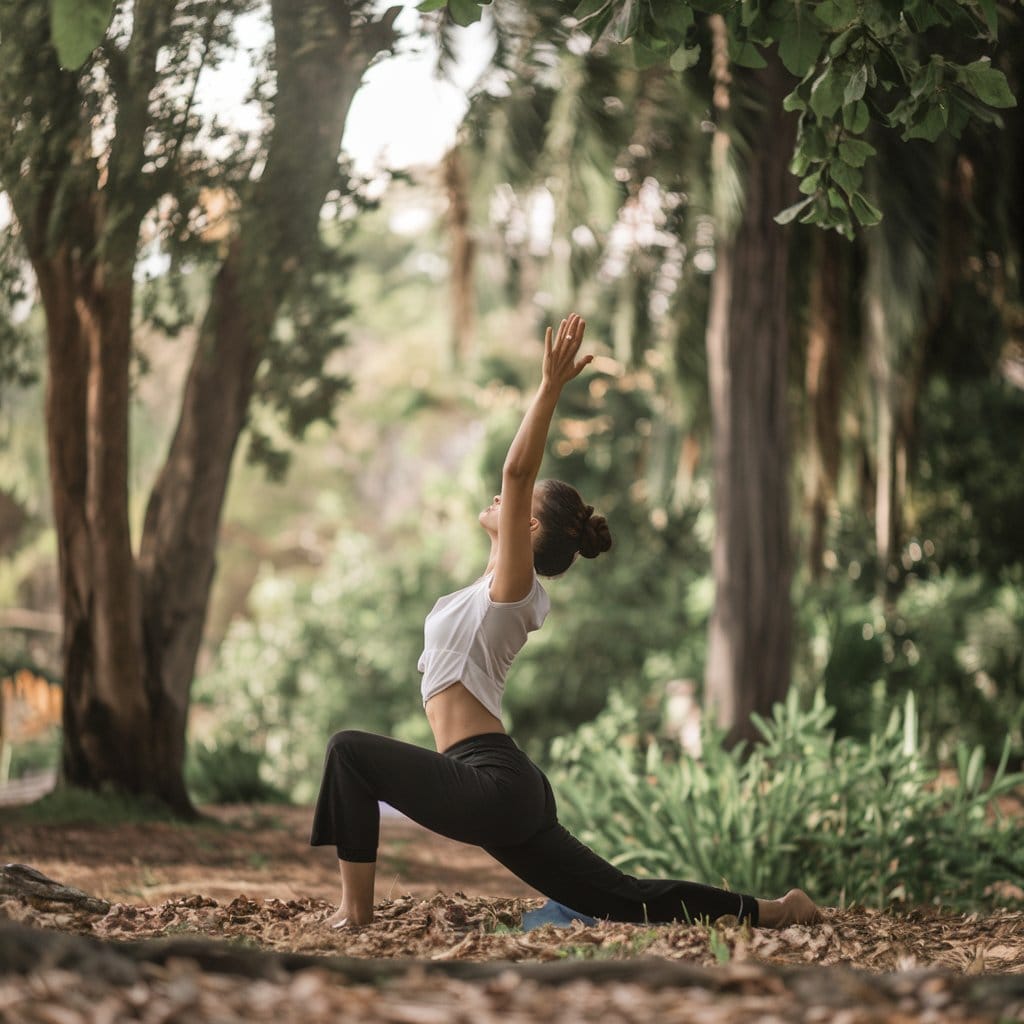You probably know that yoga is great for flexibility and physical strength, but you may or may not realize how powerful it can be for your mind. Stress compounds from work, from relationships, from everyday pressures in life. Spending a little bit of time each day working on yoga will make a big difference in how you face these challenges. It’s not just a matter of stretching or holding poses, but it’s about connecting with yourself, calming the mind, and finding balance.
Now, let’s get into the real, practical benefits of yoga for mental health, why incorporating it into your routine could save your life, and the types of yoga that are in support of each one of these benefits.
Yoga Helps You Control Your Stress

Type of Yoga: Hatha Yoga
Life can get overburdened, and stress is something everybody goes through. Be it deadlines at work, managing family responsibilities, or something as ordinary as trying to juggle everything, it is stress that weighs you down. Hatha yoga is a slow practice that focuses on basic postures and mindful breathing; it gives one that moment to breathe literally and figuratively.
In Hatha yoga practices, you learn to control your breathing skill which is considered one of the most effective ways to relax the nervous system. Hatha yoga brings down your level of cortisol, a stress hormone, and helps you to relax and focuses you on deep and steady breathing. It is not just about the feelings for the 30 or 60 minutes that one is on the mat, but with regular practice, one can carry this sense of calm into daily life. Stressful situations seem to be much more manageable because one has learned how to breathe through these situations and stay grounded through them.
Yoga Lifts Your Mood

Type: Yoga Vinyasa
We all go through ups and downs in daily living. There are days when you might be feeling on top of the world, while other days, it’s hard to find motivation. Vinyasa yoga is great for beating the blues; it links breath with movement in continuous creative flow. The unbroken flow and rhythm in Vinyasa facilitate serotonin production, the “happy” hormone, and endorphins that keep your mood high. You may find even after a short session that you feel lighter, more optimistic, and generally in a better mood. Moreover, Vinyasa encourages mindfulness the process of being more aware of your emotions and thoughts so that you begin to let go of negativity and bring in more positivity.
It Improves Your Focus and Concentration

Type of Yoga: Ashtanga Yoga
It was hard to stay in focus during times of such electronic diversions. Studying, working, or just doing everyday chores, you find your mind wandering. Ashtanga yoga is quite the opposite, for it requires deep concentration and devotion due to its structured sequences and demanding postures. Ashtanga yoga reminds you on every turn to breathe, align, and be present. It massages the brain to retain one single point of focus at any given time. With time, it installs mental discipline, which helps you increase your power concentration, clear your thoughts, and raise the effectiveness in your daily life.
Yoga Helps You Sleep Better

Type: Yin Yoga
If you’ve ever had a tough time sleeping, you know how infuriating it is to lie in bed all night and not be able to sleep. One modality that helps to calm the body and mind in preparation for sleep is yin yoga, which includes holding gentle poses for extended periods of time. In a yin class, stretching deep connective tissues and paying attention to a breath help release physical tension, setting the stage for you to relax. This slow and meditative style of yoga will help your body and brain prepare for restful sleep by calming the racing thoughts within your brain and releasing the stresses from the day. With consistent practice, improved sleep quality will ensue with a refreshed awakening.
Relieves the symptoms of anxiety and depression

Yoga Type: Restorative Yoga
Living with anxiety and depression can be a difficult fight, and it is true: yoga alone will not cure all, but particularly can be a very important tool in managing both. One of the types of yoga that comes highly recommended for calming the nervous system and reducing anxiety is restorative yoga, which employs props to support gentle, passive backbends. Restorative yoga activates the parasympathetic nervous system because it really allows the body to rest, therefore it decreases anxiety and symptoms of depression. The meditative nature allows for emotional release too, thus freeing a person from feelings and thoughts that are unwanted.
You become more mindful and self-aware.

Yoga Style: Iyengar Yoga
One of the big mental health benefits of yoga is how it teaches mindfulness. Iyengar yoga, focusing on precision, alignment, and the use of props in trying to achieve perfect posture, really encourages you to pay close attention to your body and breath. This helps to develop much greater self-awareness. By the practice of mindfulness, you will be more aware of your thoughts, emotions, and physical sensations. It is through self-awareness that you will manage to handle your stress levels, remaining in the present moment both on and off the mat. In time, you shall find an easy way of responding calmly to various challenges life tends to throw at you rather than acting impulsively.
It builds emotional resilience.

Type of Yoga: Kundalini Yoga
Life has a way of throwing curveballs at each and every one of us. It is how one reacts to those challenges that speaks volumes about their emotional strength. Kundalini yoga has combined dynamic movement, breathing techniques, and chanting in its system to awake your energy and build strength mentally and emotionally. It is in this type of yoga that the emotional blockages are released, and with it, your capability of being calm and balanced when events go against your favor. In time, with more practice of Kundalini yoga, you will be able to develop patience, acceptance, and resilience pertaining to the stressful aspects of life.
It Connects You to a Supportive Community

Type: Power Yoga
It is often performed in groups, hence promoting a sense of community and support. Power yoga is a serious and energetic Vinyasa that builds inner and outer strength. Group classes provide the prospect of establishing camaraderie and relationships with other individuals, therefore reducing incidences of loneliness. Sharing of this-meeting the challenges of a given practice-unites people together. Regular support and stimulation in activities will provide encouragement, while with the passage of time, sense of connection and support from being part of a yoga community will help maintain good mental health.

[…] helps me face toxic situations better. Taking care of my mental and emotional health makes me stronger. The right self-care strategies help me find peace and balance, even in tough […]
[…] path of mindful nutrition is not just a trend. It’s a lifelong journey that focuses on growth and […]
[…] Remember, you’re not alone in your feelings. Knowing setbacks are part of healing can change how you see things. By focusing on self-care and kindness to yourself, you can face emotional challenges head-on. Let’s look at ways to heal inner wounds and improve your mental health. […]